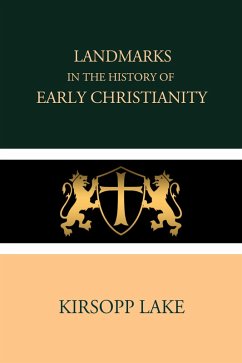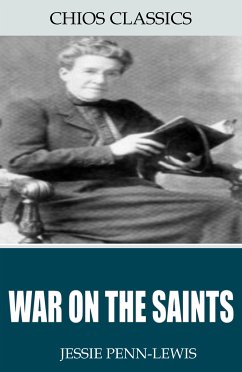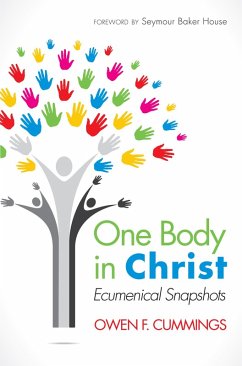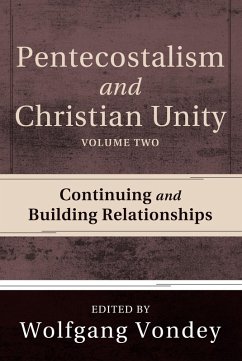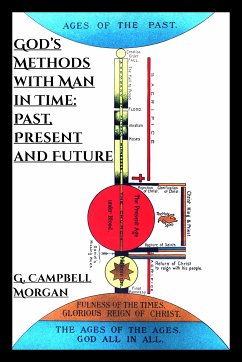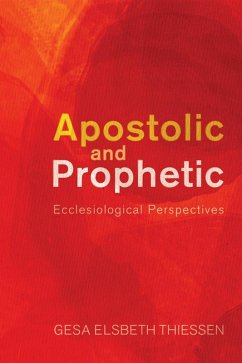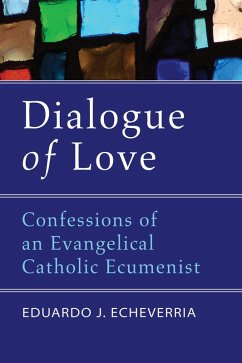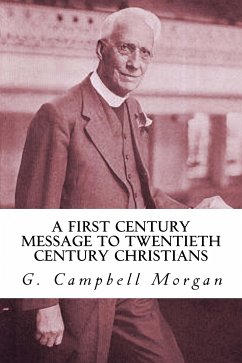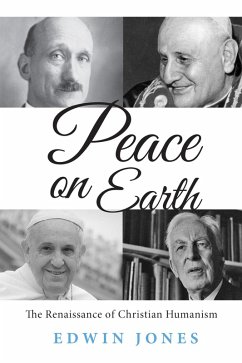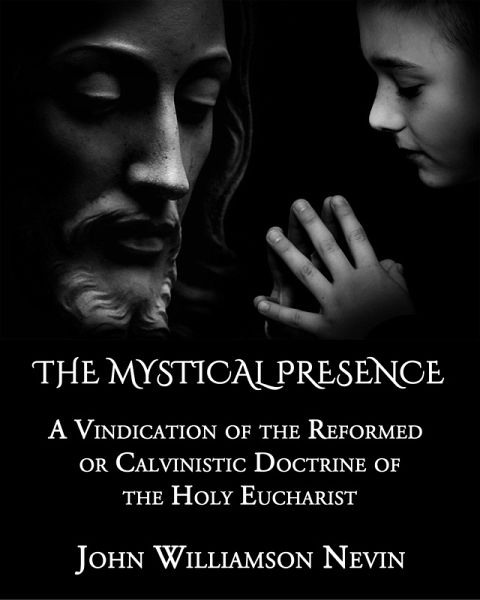
The Mystical Presence (eBook, ePUB)
A Vindication of the Reformed or Calvinistic Doctrine of the Holy Eucharist
Versandkostenfrei!
Sofort per Download lieferbar
2,99 €
inkl. MwSt.
Weitere Ausgaben:

PAYBACK Punkte
0 °P sammeln!
The following work has grown directly out of some controversy which has had place, during the past year, in the German Reformed Church, on the subject to which it relates. This stands related to it, however, only as an external occasion, and has not been permitted to come into view, in any way, in the work itself.It is not felt that any apology is needed for the publication.-This is found in the importance of its subject, which must be left of course to speak for itself.As the Eucharist forms the very heart of the whole Christian worship, so it is clear that the entire question of the Church, ...
The following work has grown directly out of some controversy which has had place, during the past year, in the German Reformed Church, on the subject to which it relates. This stands related to it, however, only as an external occasion, and has not been permitted to come into view, in any way, in the work itself.
It is not felt that any apology is needed for the publication.-This is found in the importance of its subject, which must be left of course to speak for itself.
As the Eucharist forms the very heart of the whole Christian worship, so it is clear that the entire question of the Church, which all are compelled to acknowledge, the great life-problem of the age, centres ultimately in the sacramental question as its inmost heart and core. Our view of the Lord's Supper must ever condition and rule in the end our view of Christ's person and the conception we form of the Church. It must influence at the same time, very materially, our whole system of theology, as well as all our ideas of ecclesiastical history.
Is it true that the modern Protestant Church in this country has, in large part at least, fallen away from the sacramental doctrine of the sixteenth century? All must at least allow, that there is some room for asking the question. If so, it is equally plain that it is a question which is entitled to a serious answer. For in the nature of the case, such a falling away, if it exist at all, must be connected with a still more general removal from the original platform of the Church. The eucharistic doctrine of the sixteenth century was interwoven with the whole church system of the time; to give it up, then, must involve in the end a renunciation in principle, if not in profession, of this system itself in its radical, distinctive constitution. If it can be shown that no material change has taken place, it is due to an interest of such high consequence that this should be satisfactorily done. Or if the change should be allowed, and still vindicated as a legitimate advance on the original Protestant faith, let this ground be openly and consciously taken. Let us know, at least, where we are and what we actually do believe, in the case of this central question, as compared with the theological stand-point of our Catechisms and Confessions of Faith.
CrossReach Publications
It is not felt that any apology is needed for the publication.-This is found in the importance of its subject, which must be left of course to speak for itself.
As the Eucharist forms the very heart of the whole Christian worship, so it is clear that the entire question of the Church, which all are compelled to acknowledge, the great life-problem of the age, centres ultimately in the sacramental question as its inmost heart and core. Our view of the Lord's Supper must ever condition and rule in the end our view of Christ's person and the conception we form of the Church. It must influence at the same time, very materially, our whole system of theology, as well as all our ideas of ecclesiastical history.
Is it true that the modern Protestant Church in this country has, in large part at least, fallen away from the sacramental doctrine of the sixteenth century? All must at least allow, that there is some room for asking the question. If so, it is equally plain that it is a question which is entitled to a serious answer. For in the nature of the case, such a falling away, if it exist at all, must be connected with a still more general removal from the original platform of the Church. The eucharistic doctrine of the sixteenth century was interwoven with the whole church system of the time; to give it up, then, must involve in the end a renunciation in principle, if not in profession, of this system itself in its radical, distinctive constitution. If it can be shown that no material change has taken place, it is due to an interest of such high consequence that this should be satisfactorily done. Or if the change should be allowed, and still vindicated as a legitimate advance on the original Protestant faith, let this ground be openly and consciously taken. Let us know, at least, where we are and what we actually do believe, in the case of this central question, as compared with the theological stand-point of our Catechisms and Confessions of Faith.
CrossReach Publications
Dieser Download kann aus rechtlichen Gründen nur mit Rechnungsadresse in A, B, BG, CY, CZ, D, DK, EW, E, FIN, F, GR, H, IRL, I, LT, L, LR, M, NL, PL, P, R, S, SLO, SK ausgeliefert werden.





